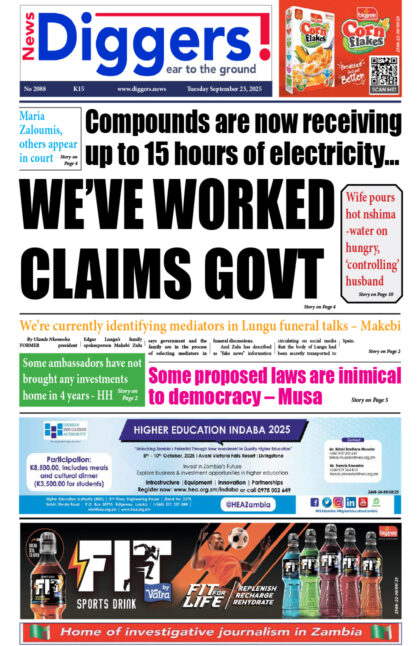A lack of technical and financial capacity has led to media practitioners’ failure to effectively hold decision-makers in government accountable, says the Panos Institute of Southern Africa.
And Panos says the media sector still faces a lot of political, economic and legal restrictions which make it difficult for it to meaningfully play its role of amplifying citizens’ voices.
In a statement yesterday, Panos executive director, Lillian Kiefer, called for support to develop the capacity of the media in order to enable media actors churn out content in a manner that would promote accountability, advance justice and the rule of law.
Kiefer noted that the lack of technical and financial capacity by most media actors in the Southern African region had put the journalism profession in a compromised position.
“As Panos Institute of Southern Africa, we are calling for increased support for the media fraternity in Southern Africa to effectively speak the truth to power and provide platforms for citizens to hold leaders to account. This year’s World Press Freedom Day (WPFD), which is being commemorated under the theme: ‘Keeping Power in Check: Media, Justice and The Rule of Law’. This theme presents a challenge to the media to position itself to promote accountability and transparency in the management of public resources, as well as advancing justice and the rule of law in Southern Africa,” Kiefer stated in a press release issued to commemorate WPFD, Thursday.
“Panos works with the media as a strong pillar upon which citizens can stand as they drive Southern Africa’s development agenda. A strong media sector presents a strong platform for citizens to freely express themselves and actively engage with decision makers.”
And Kiefer stated that citizens’ ability to keep power in check gets weakened and compromised in a society where the media is not free.
“In Southern Africa, the media sector still faces a lot of political, economic and legal restrictions which make it difficult for it to meaningfully play its role of amplifying citizens’ voices and advancing justice and the rule of law. When the media is weak or not free, citizens’ ability to keep power in check is also weakened or compromised. In the countries where laws and policies are inadequate or unfavourable to the freedom of the media, we appeal for urgency in putting in place measures to change the situation. We also appeal to those countries, which has put in place laws or policies guaranteeing press freedom to ensure that these are implemented in a way that will improve the media’s role as a platform for citizens to keep power in check,” Kiefer added.
She stressed the need for governments in the region to allow the press to operate freely.
“We would like to encourage the governments in countries like Zimbabwe to open up the space for community media actors to operate freely. Panos also appeals for support to develop the capacity of media to churn out content in a manner that will promote accountability and transparency, and advance justice and the rule of law. The limited technical and financial capacity of most media actors in the region puts them in a compromised position. That is why in our Strategic Plan for 2017 to 2021, one of Panos’ priorities is to increase the capacity of media practitioners and media bodies in highlighting and influencing the use of evidence to champion demand for accountability of decision-makers,” stated Kiefer.
“We have no doubt that a strong and free media sector will contribute to accountable and transparent development processes in Southern Africa, where justice and the rule of law are upheld.”
























